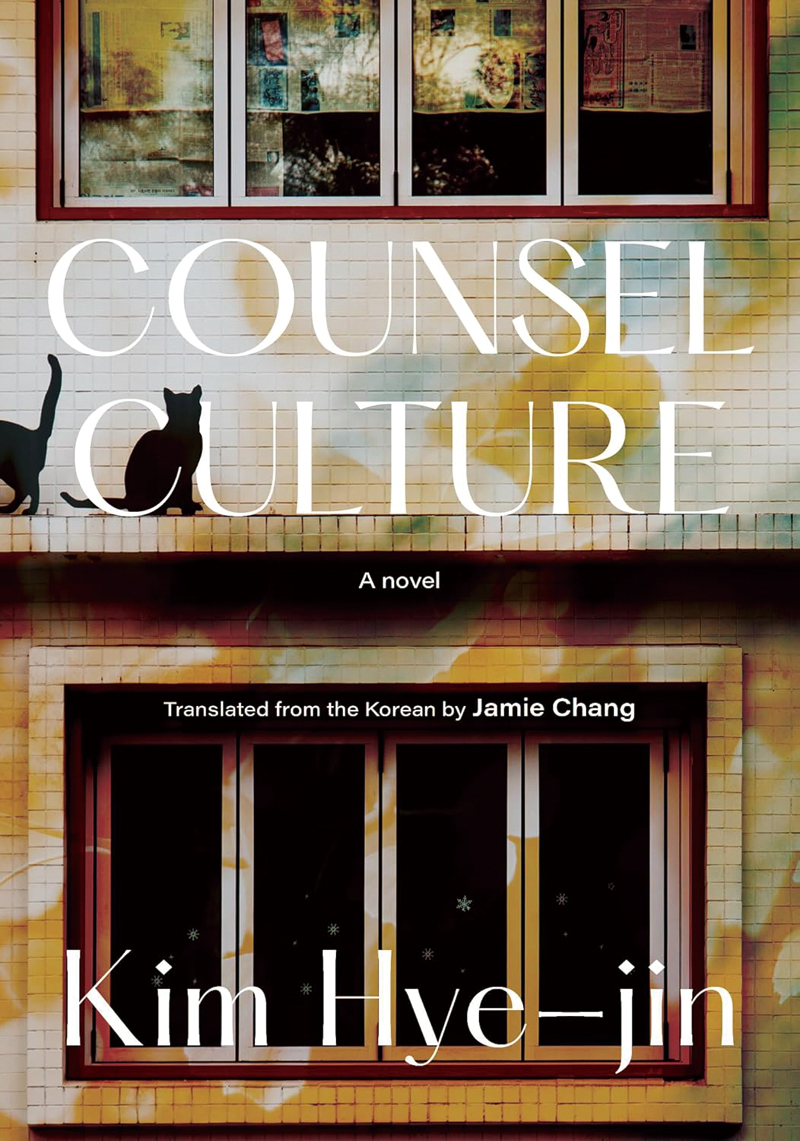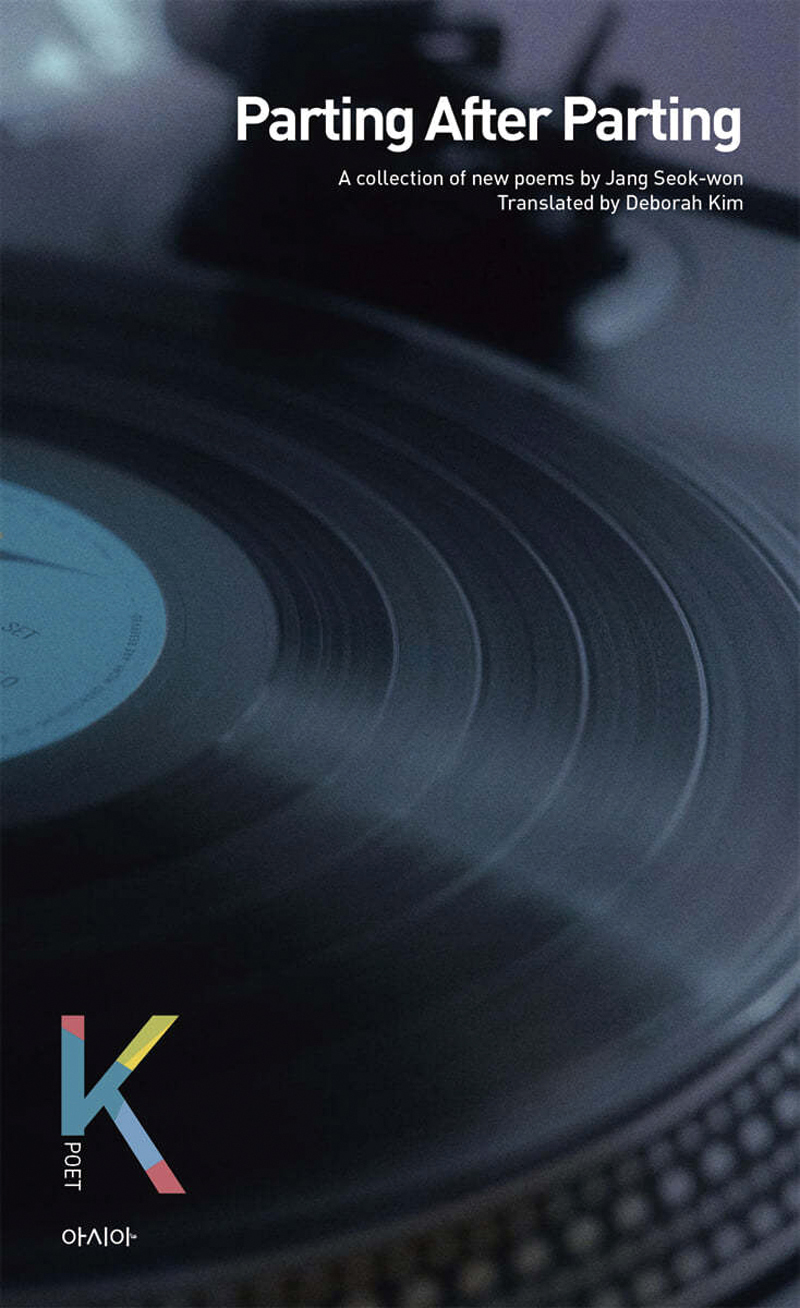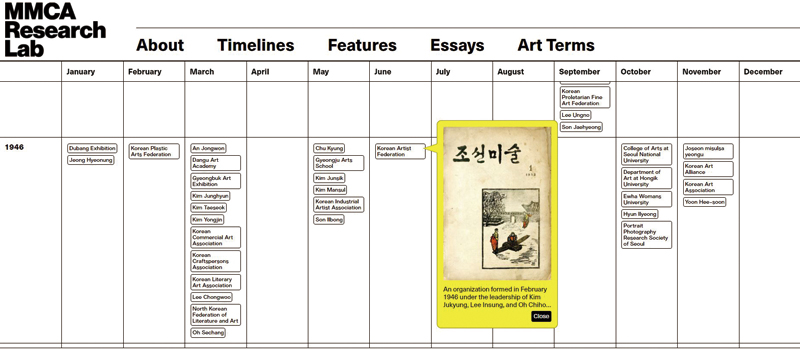“Counsel Culture”
By Kim Hye-jin, translated by Jamie Chang
208 pages, $18.00, Restless Books, 2024
Putting Back the Pieces of a Broken Life

Kim Hye-jin’s Counsel Culture feels very much like a novel for our times. The protagonist, Haesoo, is introduced through a letter she is writing to a reporter she accuses of slandering her. But the letter remains unfinished, like almost all her letters throughout the novel . They are less attempts to convey her thoughts and more “attempts at self-deception.” As the story unfolds, we learn that as a therapist and frequent talk show guest Haesoo thoughtlessly delivered a scripted comment about a certain actor. Just one more voice in a sea of voices, she thought. But then the actor committed suicide, turning Haesoo’s life upside down. Now she lives in the shadow of the actor’s death, after she and a few others have been held responsible by the online mob.
Haesoo thought she understood the power of language and prided herself on her interpersonal communication skills. Now she is forced to face the reality that she still has much to learn. She withdraws into herself, fearful that any human interaction might lead to recognition and recrimination. But then she meets a young girl in her neighborhood named Sei, who is bullied by her dodgeball teammates at school for being fat and slow, and a stray cat named Turnip that desperately needs rescuing. Will she save Turnip from a slow and painful demise on the streets? Will her friendship with Sei help the young girl through her struggles? Perhaps most importantly, will Haesoo come to terms with her own situation and rediscover why she wanted to be a therapist in the first place?
There are many possible lenses through which to view Counsel Culture; one such lens is that of moral circles. As Haesoo wonders what others will think of her, walking around with a trap and trying to capture a stray cat, she muses about the “line between things that do and do not require her attention,” a line that was once firm and distinct but which has become blurred since the incident. In that moment, Haesoo perceives the blurring of this line as a sign of her confusion, but it may in fact be a sign that her moral circle — the line she draws between those beings worthy of moral consideration and those not — is expanding. It is impossible not to connect the dots to muse on the irony of our modern world, where we are more connected than ever before, thanks to the power of the internet and social media. Yet, at the same time, we often feel terribly isolated, perceiving others online not as people, not as moral beings, but as faceless entities no more worthy of our attention than a stray cat mewling in an empty lot.
The clever English title plays on the similarity between “cancel” and “counsel,” thus highlighting another important aspect of the story, but the original Korean title is Gyeongcheong, which means “to listen attentively.” Perhaps this is what we need: the desire not to disseminate our point-of-view but be willing to listen. Counsel Culture indeed gives the careful reader much to listen to.
“Parting After Parting”
By Jang Seok-won, translated by Deborah Kim
86 pages, W10,000, ASIA Publishers, 2023
A Revolution of Language

Poet and literary critic Park Sang-su notes that the poems of Jang Seok-won — twenty of which are brought together in English translation in this new collection — originated in the themes of revolution and love, and that those themes continue to inform Jang’s work. Indeed, those themes are readily apparent in this collection. On the surface, the cries of revolution echo from Korea’s democracy movement of the 1980s, but the revolution is not limited to politics or ideology. Rather, Jang argues that no revolution is complete without a revolution of language. His poetry embodies his efforts to incite such drastic change. The language that he uses is one of conflict and struggle, exploring the relationship between humanity and nature, and sometimes even reaching beyond that to a future of transhumanism. Love also shines through, but not in its romantic, saccharine form. No, the love of which the poet sings is a raw love of pain and longing, sometimes cannibalistic, sometimes intertwined with death. This new collection will serve as a window, allowing the reader to both peer into the poet’s world and contemplate the reader’s own reflected image.

THE MMCA (National Museum of Modern and Contemporary Art) Research Lab is “an online platform for sharing knowledge and information on research of contemporary Korean art.” It covers South Korean art from 1945 through the 1990s and beyond. The content is divided into two general categories: 1) encyclopedic information on artists, organizations, institutions, exhibitions, and other important aspects of the art world, and 2) academic essays on Korean art. Befitting the efforts of such an important institution in South Korean art, the research lab gives visitors numerous interconnected pathways into this treasure trove, all housed in a sleekly designed interface. The front page greets visitors with the various art terms organized chronologically on a monthly calendar, and menu options across the top — Timelines, Features, Essays, and Art Terms — organize the art terms and academic essays (all of which are competently translated into English) chronologically, thematically, and alphabetically. Should the visitor be looking for a specific resource, there is always the search bar at the very top of the page. The research lab is a valuable resource for anyone wishing to learn more about modern and contemporary South Korean art, and hopefully it will only continue to grow.